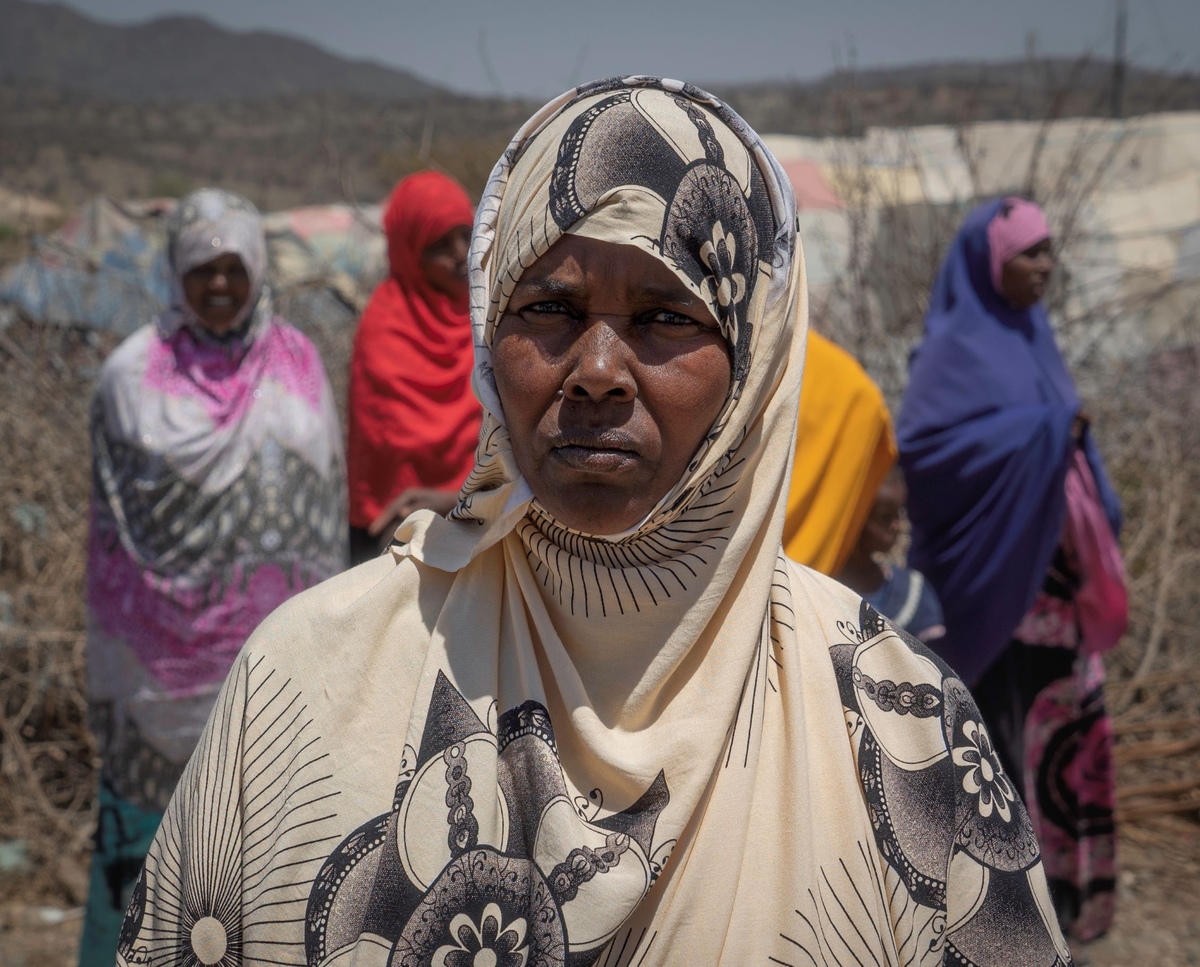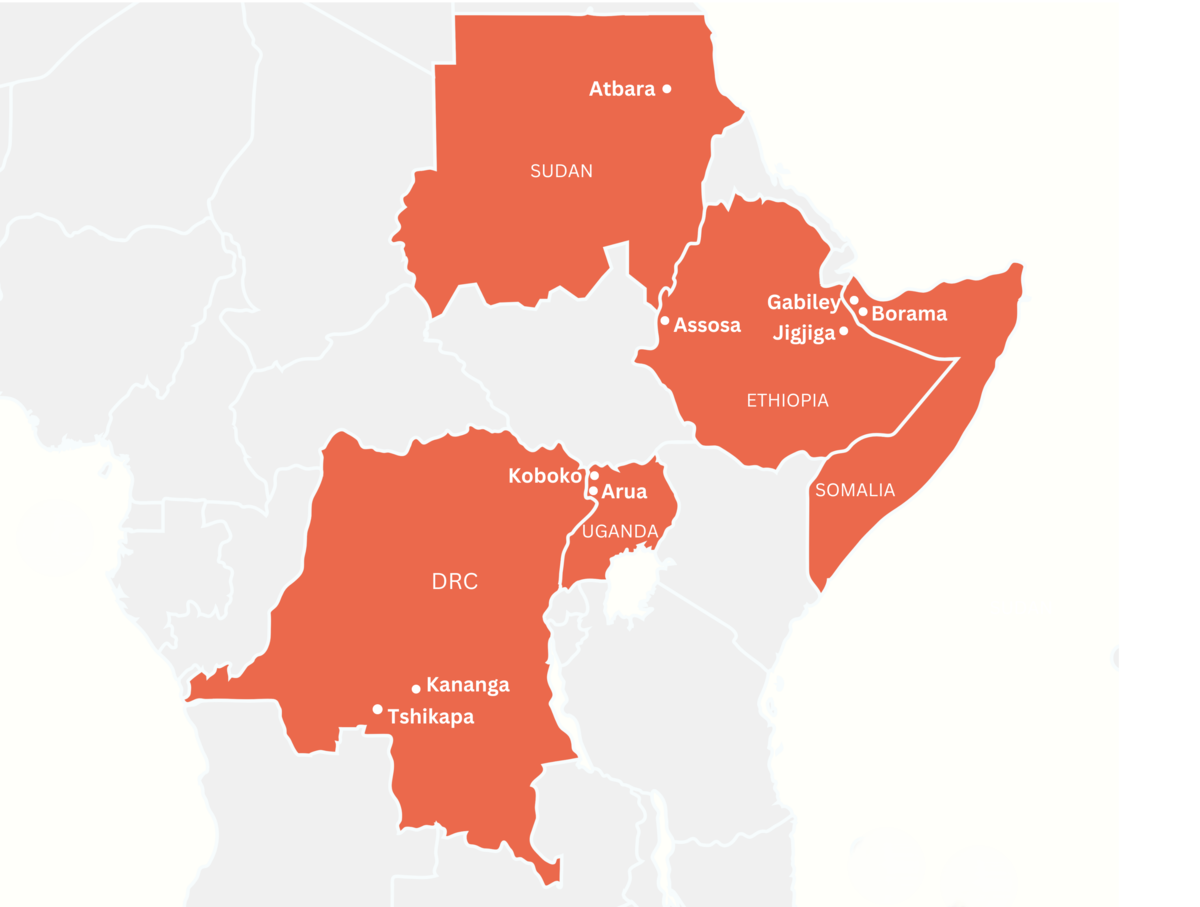This four-year partnership programme aims to foster the sustainable integration of displaced populations and their host communities in secondary cities across Sub-Saharan Africa.
The initiative enhances municipalities' capacity to effectively address the needs of Displacement Affected Communities (DACs) amidst increasing urban challenges caused by forced displacement and migration. At the same time, the host cities and key local stakeholders become more resilient and better prepared for the impacts of human mobility.
SUIDAC seeks to benefit DACs by expanding basic public services, enhancing economic opportunities, and providing better protection. On the city side, SUIDAC will foster multi-level policy dialogue (local, national and regional) on urban forced displacement issues concerning DAC-hosting cities AND strengthen governments' evidence-based responses to these issues.
SUIDAC is active in nine cities in five countries: Democratic Republic of the Congo (DRC), Ethiopia, Somalia, Sudan, and Uganda.
The programme’s activities focus on the governance, citizenship, environment, economic realities, and services that lie at the nexus between forced displacement and urban development. They include locally driven projects designed to benefit both displaced communities and host cities, as well as local and regional dialogues to promote social cohesion and conflict prevention.
The programme builds on strong partnerships with diverse city stakeholders and national actors, including local and national governments, protection agencies, academia, the private sector, refugee-led organisations, and host community representatives such as civil society organisations focused on the empowerment of women and youth.
SUIDAC is funded by the European Union with a €30 million grant and implemented by Cities Alliance.

Forced Displacement and Migration as an Urban Phenomenon
Globally, more than 60% of all refugees and 80% of all internally displaced persons (IDPs) are living in urban areas (UNHCR). This shift has put considerable pressure on fast-growing secondary cities in developing countries that already struggle to meet the needs of their populations.
The situation is especially acute in the Horn of Africa, which hosts approximately one-fifth of the world’s refugees and 30% of all displaced people worldwide.
Demographic, economic, political, and environmental pressures all intersect in the Horn of Africa, driving popular unrest and resource competition. These pressures also destabilise migration patterns, exacerbating tensions between states.
Partner Cities
SUIDAC is active in nine secondary cities that host large displaced populations:
- Kananga and Tshikapa, DRC
- Assosa and Jigjiga, Ethiopia
- Borama and Gabiley, Somalia
- Atbara, Sudan
- Koboko and Arua, West Nile Region, Uganda

Goals
The overarching goal of SUIDAC is to enhance the sustainable integration of Displacement-Affected Communities in these cities. This Action defines DACs as both the forcibly displaced populations (refugees, asylum seekers, IDPs, returnees) and host communities.
To achieve this, the programme has outlined two primary outcomes:
Improving self-reliance and social cohesion
The programme will work to improve the well-being of DACs by reducing distress and enhancing access to essential services such as health, nutrition, education, and housing. It aims to increase livelihood opportunities and financial support, ensuring displaced individuals achieve greater economic independence.The initiative will also improve access to documentation and legal assistance, ensuring that DACs receive the protection they need.
Strengthening local governance
Urban development policies will be adopted to integrate approaches to forced displacement, ensuring inclusive and sustainable urban planning. The programme will facilitate key infrastructure projects that embed environmentally sustainable practices.It will also promote multi-level policy dialogue to strengthen responses to urban displacement and ensure coordinated regional strategies.

Funded by


